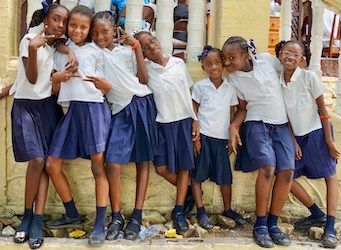
Haiti. Officially the Republic of Haiti, a country on the island of Hispaniola in the Caribbean Sea, east of Cuba and Jamaica, and south of The Bahamas. It occupies the western three-eighths of the island, which it shares with the Dominican Republic.
Haiti is the third largest country in the Caribbean, and with an estimated population of 11.4 million, is the most populous Caribbean country. The capital and largest city is Port-au-Prince.
The island was originally inhabited by the Taíno people. The first Europeans arrived in 1492 during the first voyage of Christopher Columbus, establishing the first European settlement in the Americas, La Navidad, on what is now the northeastern coast of Haiti.
The island formed part of the Spanish Empire until 1697, when the western portion was ceded to France and subsequently renamed Saint-Domingue. French colonists established sugarcane plantations, worked by slaves brought from Africa, which made the colony one of the world’s richest.
In the midst of the French Revolution, enslaved persons, maroons, and free people of color launched the Haitian Revolution (1791–1804), led by a former slave and general of the French Army, Toussaint L‘Ouverture.
Napoleon’s forces were defeated by Louverture’s successor, Jean-Jacques Dessalines (later Emperor Jacques I), who declared Haiti’s sovereignty on January 1, 1804, leading to a massacre of the French.
Haiti became the first independent nation in the Caribbean, the second republic in the Americas, the first country in the Americas to officially abolish slavery, and the only country in history established by a slave revolt.